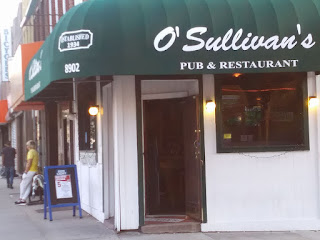Time of Trial
The 30-minute documentary features the defendants Abbie Hoffman and Jerry Rubin, their attorney, William Kunstler, and the French author Jean Genet.
I have this vague memory of watching the actual event being covered on Eyewitness News when I was 12 years old.
There was a young man with glasses wearing a robe and some kind of headgear who called upon the evil spirit to vacate the jurist with all due haste.
Julius Hoffman was roundly hated by the left back then and demonic possession apparently seemed like a logical explanation for his behavior to some people.
I was starting to wander if I had imagined this bizarre incident, but this film’s existence proves that I’m not completely crazy…or possessed.
The exorcism attempted is one of several recollections that came to me Saturday after my sister and I watched The Trial of the Chicago Seven, Aaron Sorkin’s riveting account of the infamous court case that dominated the news in 1969.
Abbie Hoffman—no relation to the judge—Rubin and, initially six, and then five other defendants had been charged by the government with crossing state lines to incite a riot and other charges related to anti-war protests in the Windy City during the 1968 Democratic convention.
I have to say that it’s always a little disconcerting to see one’s memories become the stuff of an historical movie.
I was one of the few kids in school who was against the war, and I remember the trial back when it was a part of current events.
The Whole World is Watching
Every night on his evening broadcast Walter Cronkite would provide an update on what bizarre event had happened in court day—and there were plenty of them.
One of the most heinous, which is depicted in the film, occurs when the judge orders defendant Bobby Seale to be bound and gagged in the courtroom after the Black Panthers’ co-founder demands the right to defend himself.
One juror began weeping, and other jurors squirmed in their seats, while the real-life Kunstler declared “this is no longer a court of order, your Honor; this is a medieval torture chamber.”
Trial witnesses included Norman Mailer, Dick Gregory, Allen Ginsberg and Judy Collins, who tried to sing “Where Have All the Flowers Gone?” until the judge stopped her and she read the lyrics instead.
Yeah, I remember that, too, though it didn’t make it into the movie.
The film opens with a series of jolts, reminding us of the assassinations of Martin Luthor King Jr. and Robert Kennedy.
According to author Bruce Ragsdale, the Kennedy slaying had "further shocked the nation and "by August, many Americans believed the nation was in the midst of a profound political and cultural crisis.”
Sound familiar?
I can’t attest to the accuracy of Sorkin’s film, but if half the incidents that appear screen actually happened, then the trial was a monumental miscarriage of justice and something that should horrify people of all political stripes.
The actors—including Sacha Baron Cohen, Eddie Redmayne and Mark Rylance, are all excellent, but my sistert and I didn't think Rylance bore much of resemblance to the boisterous, wild-haired William Kunstler that we remember.
Exorcisms, courtroom bondage, and folk singers. I find it hard to believe that this all happened and I find it impossible to believe that it happened so long ago.
We survived that crisis, and I’m hoping that we survive our current political turmoil.
But in case things really go bad, perhaps there are some Columbia University students who can help us out.





Comments
We have a tendency to think that things were much better back then (particularly compared to todays climate), yet this film shows that it was not. I also think that because of social media (and the media in general), there is a lot more blatantly revealed today, than back then.
Thanks so much for sharing this. I will have to watch both the documentary AND the film, which by the way, I really like actor, Eddie Redmayne.
Have an AWESOME week, buddy!
Oh, you are so right about our inaccurate views of the past and the alleged "good old days."
It is also subjective since one man's good old days is another's Spanish Inquisition.
And then we have social media is also cranking up the crazy.
I recommend the Trial of the Chicago Seven most highly and I aim to find out more about Eddie Redmayne. (Most of the top actors in the movie were British, btw)
Take care, buddy!
You youngsters have it easy today! Just kidding--I just always wanted to say that!
It does like we'll always have controversy and confrontation--human nature, I reckon!
Take care!
Hey. Beatrice! I do recommend the Trial of the Chicago Seven.
The Conspiracy and the Dybbuk might be a little harder to come by.
Take care!